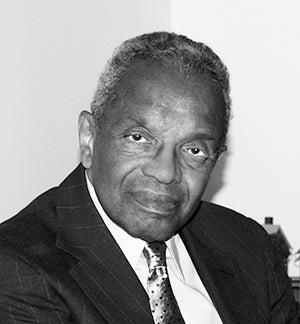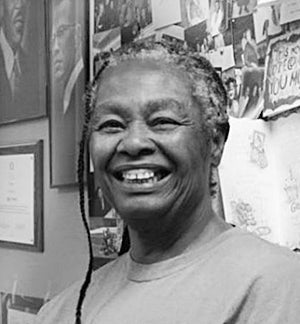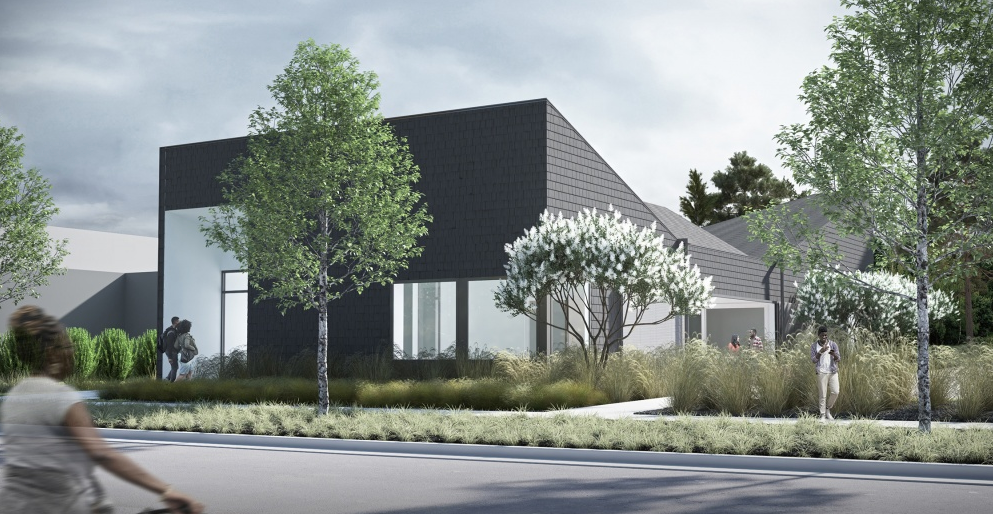Black Cultural Center Naming
At its summer meeting in early September, the University of Oregon Board of Trustees unanimously approved naming the new Black Cultural Center (BCC) for Lyllye Reynolds-Parker.
Following a public process earlier this year, UO President Michael H. Schill had officially recommended naming the center after Reynolds-Parker, an alumna, longtime student advisor, and activist.
Schill previously charged a committee of students, faculty, and staff to evaluate all nominations received by June 19. In a memo to President Schill on July 10, 2019, the committee provided two names for his consideration, Reynolds-Parker and Derrick Bell.
BCC Naming Recommendations
 Derrick Bell
Derrick Bell
Derrick Bell was the first black dean of the UO School of Law, serving for five years beginning in 1980. As a professor of law at Harvard University in the mid-1970s, he established a field of study known as critical race theory. When Bell resigned his position at the UO, he said it was due to the law school faculty’s refusal to offer a tenure-track position to an Asian-American female professor. He returned to Harvard Law School in the fall of 1986 but left in 1990 to protest the lack of a black female professor within that school. While on leave from Harvard, he became a full-time visiting professor at New York University School of Law. Bell was a published author and noted lecturer on critical race theory and civil rights. More recently he made national headlines as a friend and former professor of Barack Obama. The UO School of Law has a speaker series named in Bell’s honor. Bell died in October 2011 at the age of 80.
 Lyllye Reynolds-Parker
Lyllye Reynolds-Parker
Lyllye Reynolds-Parker was born in Eugene in 1946 and was a member of the first graduating class of Henry D. Sheldon High School. Parker started her social justice work while in high school, being actively involved with the civil rights movement here. She was vice president of the local Student Non-violence Committee, an organization founded by Stokely Carmichael, an internationally known civil rights advocate. She earned her BA in sociology from the UO in 1991. Parker worked at the UO as an academic advisor in the Office of Multicultural Academic Success for 17 years, until she retired. She has served on multiple advisory committees. Parker also serves on the board of a local nonprofit, the League of United Latin American Citizens, where she is the honorary chair of their Anti-Racial Profiling Committee. The UO’s Women’s Center hosts an annual Lyllye B. Parker Womxn of Color Speaker Series to bring female speakers of color to campus.
Process Timeline
- June 19, 2019: Deadline to submit nominations
- July 10, 2019: Committee provides three suggested names to President Schill
July 24, 2019Extended to August 2, 2019: Deadline for public comment on committee’s recommendations, by 5:00 p.m.August 14, 2019Extended to August 23, 2019: President makes his recommendation to the Board of Trustees for consideration at its September 2019 meeting- September 5–6, 2019: Board of Trustees considers President Schill’s recommendation
- October 12, 2019: Grand opening date for the Black Cultural Center
Specific Criteria
In addition to the applicable criteria set forth in UO Policy IV.07.02, President Schill asked the committee to use the following criteria to guide its deliberations:
- An individual who has made significant contributions in service, support, or honor to the University of Oregon or to the State of Oregon;
- An individual who has an extraordinary record of leadership and commitment to advancing justice and equity for Black people in Oregon;
- An individual who has demonstrated evidence of overcoming oppression and discrimination;
- An individual who strongly advocated for the pursuit of knowledge and advancement of higher education;
- An individual whose own work has led to an inclusive and equitable University of Oregon campus;
- An individual whose work has led to achievements of extraordinary and lasting distinction; and,
- An individual who has helped Black students and/or community members achieve success in higher education and the pursuit of careers.
Nomination Process
The nominations process has now closed. Thanks to all of those that participated in the process.
Contact
For more information on the Black Cultural Center, including the naming process, please email kmarbury@uoregon.edu.

